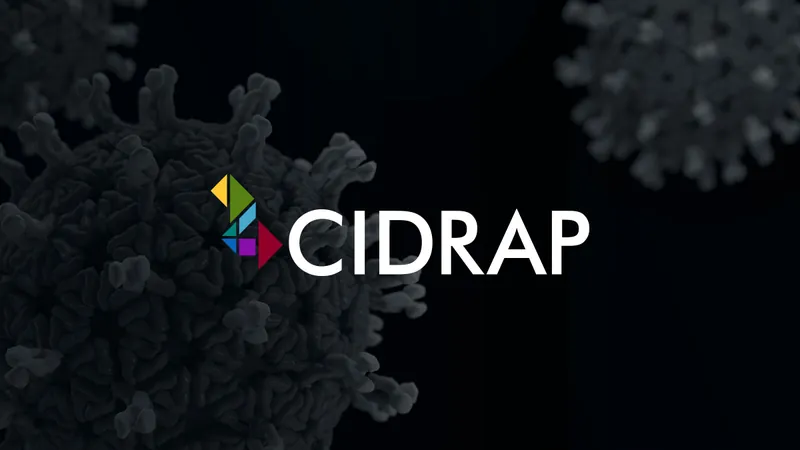
Revolutionary AI-ECG Unveils Hidden Heart Failures in Kenya
2025-05-19
Author: Ming
Transforming Heart Health in Resource-Limited Areas
In an exciting breakthrough, a new artificial intelligence algorithm, known as AI-ECG, could be the game-changer in diagnosing subclinical heart failure in regions like Kenya, where traditional echocardiography is often inaccessible. This innovative technology, unveiled at the European Society of Cardiology’s Heart Failure 2025 congress, demonstrates exceptional capability in identifying individuals with left ventricular systolic dysfunction (LVEF < 40%)—a critical warning sign of heart issues.
Unveiling Hidden Dangers
Dr. Ambarish Pandey from UT Southwestern Medical Center revealed that the AI-ECG model boasts impressive diagnostic performance, showcasing high sensitivity and specificity. But there's more on the line than just numbers; a positive screening correlates with serious cardiac conditions like left ventricle hypertrophy and diastolic dysfunction, marking the tool as essential in early detection.
A Global Solution for Heart Health
While the focus has been on regions with limited resources, Dr. Christian Mueller from the Cardiovascular Research Institute in Switzerland suggests these findings might ring true across the globe. He emphasizes the widespread need for effective heart failure detection, even in well-equipped medical environments.
Heart Failure: An Increasing Threat
Heart failure is a growing concern worldwide, especially in sub-Saharan Africa, where patients tend to be younger and face a higher risk of severe outcomes compounded by low access to optimal treatments. Dr. Pandey pointed out that as cardiovascular risk factors rise, so does the urgency for swift diagnosis and intervention—something that few can afford with the current reliance on echocardiography.
AI: The Future of Cardiac Screening
The need for alternative screening methods is pressing. The recent study involving 5,992 adults across eight healthcare facilities in Kenya, where AI-ECG was applied to standard 12-lead ECGs, highlighted its potential. With nearly one in five patients showing signs of LV systolic dysfunction, it's clear this tool can identify at-risk individuals more efficiently.
Validating AI Performance
In the subset that underwent echocardiography, 14.1% were confirmed to have an LVEF below 40%, with even higher rates among those categorized as high-risk due to pre-existing conditions. Notably, the AI-ECG results matched up with echocardiography outcomes in an impressive 82% of cases. With a sensitivity of 96% and specificity of 79%, the AI tool proves to be a reliable ally in the fight against heart failure.
The Power of Early Detection
As the study continues to garner attention, it underscores the valuable insights AI can offer in heart health. Factors influencing positive AI-ECG screenings included previous heart failure symptoms and existing cardiovascular diseases. This reinforces the notion that prompt inclusion of AI in cardiac care could significantly alter the trajectory of heart health in varied environments, making early intervention more accessible and potentially saving countless lives.




 Brasil (PT)
Brasil (PT)
 Canada (EN)
Canada (EN)
 Chile (ES)
Chile (ES)
 Česko (CS)
Česko (CS)
 대한민국 (KO)
대한민국 (KO)
 España (ES)
España (ES)
 France (FR)
France (FR)
 Hong Kong (EN)
Hong Kong (EN)
 Italia (IT)
Italia (IT)
 日本 (JA)
日本 (JA)
 Magyarország (HU)
Magyarország (HU)
 Norge (NO)
Norge (NO)
 Polska (PL)
Polska (PL)
 Schweiz (DE)
Schweiz (DE)
 Singapore (EN)
Singapore (EN)
 Sverige (SV)
Sverige (SV)
 Suomi (FI)
Suomi (FI)
 Türkiye (TR)
Türkiye (TR)
 الإمارات العربية المتحدة (AR)
الإمارات العربية المتحدة (AR)